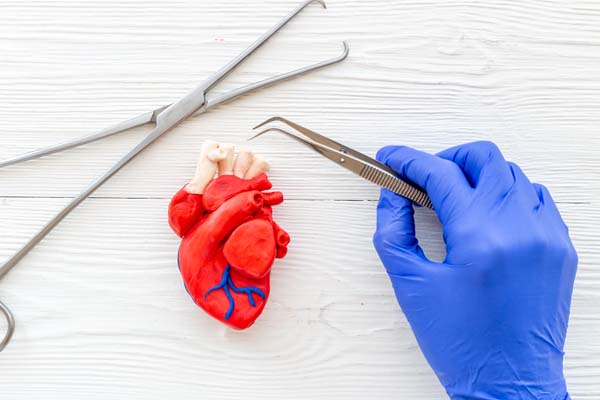9 Reasons You Need a Cardiologist

If you have ever found yourself wondering what a cardiologist does or when to see one, you have come to the right place. A cardiologist is a medical doctor who focuses on issues that affect the heart. Heart disease claims more lives in the U.S. than any other health issue. Those who are at an increased risk of developing heart issues should see one of these specialists regularly.
Nine reasons to see a cardiologist
1. Doctor referral
The first visit most people make to a cardiologist often comes after a doctor refers them. This is usually because the doctor notices a red flag and wants a second opinion from a specialist. A doctor might also refer a patient to a cardiologist because of the person's family history.
2. Patient's family has a history of heart disease
Patients should dig through their family history and look for health problems like heart disease. It has been linked to genetics, so if there is a pattern in a person's family tree, it is best to see a cardiologist before any issues develop.
3. High blood pressure
Patients are advised to get regular blood pressure tests once they hit age 20. When a person notices an upward trend, a visit to the cardiologist is in order. The heart specialist will help manage the patient's blood pressure and bring it down to normal levels. Blood pressure is a major risk factor for both strokes and heart disease.
4. High cholesterol levels
Cholesterol is a strong risk factor for heart disease, and it can be tough to manage. Patients are advised to see a heart specialist if their cholesterol levels are abnormally low.
5. Preeclampsia
Research conducted by the Preeclampsia Foundation indicates that women with a history of preeclampsia — high blood pressure while pregnant or after giving birth — are twice as likely to develop heart disease.
The risk becomes even higher if the patient has it more than once or delivers a premature baby.
6. High heart age
Patients who are not sure if they are at an increased risk of developing heart disease are advised to visit a cardiologist to find out their heart age.
7. Tobacco use
People who smoke or have smoked in the past have increased odds of developing heart disease.
8. Diabetics
People with diabetes are up to four times more likely to develop heart disease than those without it. It is one of the seven main risk factors for heart disease.
9. Early heart issues
People who were born with a congenital heart defect need continuous care throughout their lives. Regular visits to a heart specialist is a must for such people.
When was the last time you saw a cardiologist? Set up an appointment with one of our heart specialists and improve the health of your heart. Having a healthy heart makes it possible for you to live a healthy lifestyle.
Looking for a cardiologist near the 33437 area? Call Florida Premier Cardiology at (561) 229-1411.
Check out what others are saying about our services on Yelp: Read our Yelp reviews.
Recent Posts
A cardiac stress test is a diagnostic tool to evaluate how well the heart performs under physical stress. Cardiologists use this test to detect underlying cardiovascular conditions, monitor treatment progress, or assess the risk of future heart complications. Cardiac stress tests are essential in the early detection and management of heart disease.A cardiac stress test…
Peripheral arterial disease affects blood flow in the arteries, most commonly in the legs. It develops due to plaque buildup in the arteries that causes them to narrow and restrict circulation, possibly leading to discomfort, difficulty walking, and other serious complications. Recognizing the symptoms early and exploring treatment options can help improve the quality of…
Receiving cardiovascular treatment is a critical step in managing heart health, but recovery and long-term are equally vital to ensure long-term wellness. Whether the treatment involves medication management, interventional procedures, or surgery, maintaining a relationship with the cardiologist and following their recovery guidelines is crucial. A structured follow-up plan allows patients to maintain the benefits…
An echocardiogram is a common and painless test that helps doctors evaluate heart health. This test uses sound waves to create images of the heart, allowing cardiologists to examine its structure and function. Many people feel nervous before a medical test, but understanding what to expect can help reduce stress.An echocardiogram is a diagnostic test…


